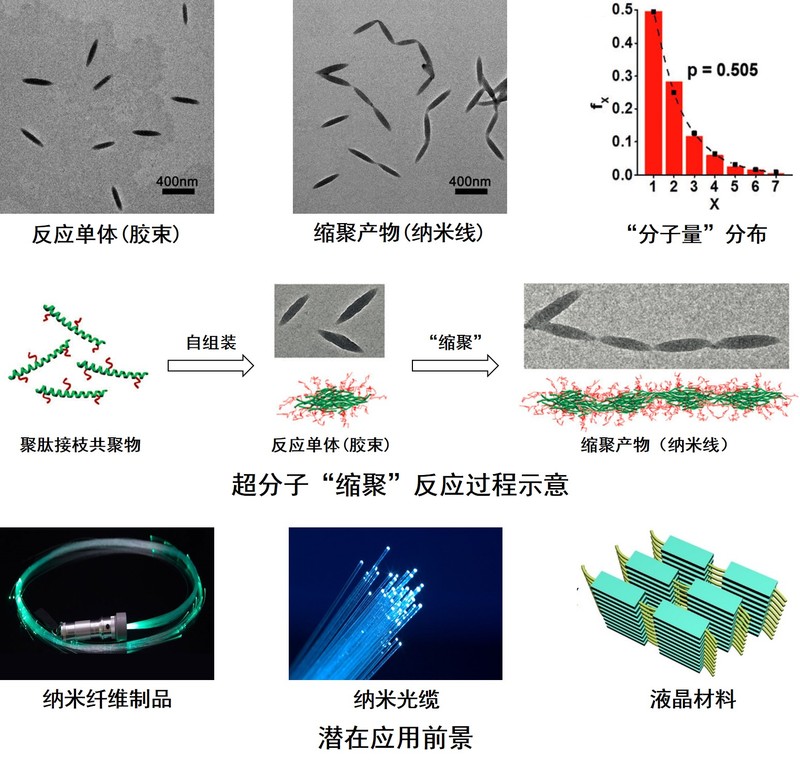In the 1930s, polymer scientists discovered that small molecules with functional groups could react to form polymers, and people used this reaction to obtain a series of products, such as nylon, polyester and so on. These polymer materials gradually became the necessities of human life and industrial development. Recently, Jiaping Lin of the School of Materials Science and Engineering discovered that condensation polymerization can occur at supramolecular scales. His research results entitled as "Hierarchical Nanowires Synthesized by Supramolecular Stepwise Polymerization" were published in Angewandte Chemie International Edition.

Nanoscale aggregates, such as micelles, can undergo "condensation polymerization" to form nanolinear chain supramolecular "polymers" after generating reactive points through specific methods. This discovery provides a new method to prepare multistage structure nanomaterials. The method has universality and controllability, and its significance lies in extending the scope of condensation polymerization to nanometer scale. The results show that supramolecular "condensation polymerization" is not limited to a specific polymer, but is generally suitable for most copolymer systems with rigid chain segments, and the multistage assembly obtained by "condensation polymerization" has controllable structure and size. Therefore, supramolecular "condensation polymerization" shows a broad application prospect, which can be used to accurately prepare nanodevices with multistage structure and improve the scale of functional nanomaterials, such as photoelectric nanowire, nanocable and intelligent responsive drug carrier. Through the supramolecular "condensation polymerization", it is also expected to prepare various metamaterials, such as ultra-strength liquid crystal, for aerospace field.
This work was completed by Doctor Zeliang Zhuang and Doctor Tao Jiang under the guidance of Professor Jiaping Lin. Recently, the research group has also made a series of progress in scientific research and team building. At the beginning of this year, Professor Jiaping Lin was elected a fellow of the Royal Society of Chemistry. Professor Shaoliang Lin was supported by "Excellent Young Scientists Fund" of National Natural Science Foundation of Chinain 2016. Associate Professor Chunhua Cai published a review article on Chemical Society Reviews about his recent research. The innovation team won the first prize of 2015 Shanghai Natural Science Award for its research achievements.